
Multidirectional collaboration is critical for the new pharma business model; cloud-based information services can offer a communications alternative.

Cynthia A. Challener is a contributing editor to Pharmaceutical Technology.

Multidirectional collaboration is critical for the new pharma business model; cloud-based information services can offer a communications alternative.

With a quality-by-design approach, robust processes can help deliver quality product consistently.
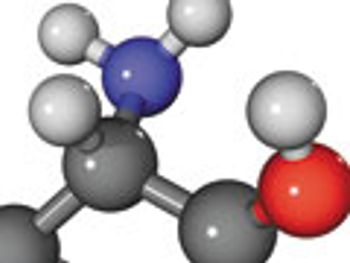
A literature survey underscores the breadth of chiral chemocatalysis and interesting new techniques for the selective preparation of asymmetric compounds.

A survey of the recent literature reveals numerous advances in asymmetric chemocatalysis.

With a quality-by-design approach, robust processes consistently can help deliver quality product.

Biopharma manufacturers must reduce risk in their complex supply chains and establish effective monitoring and control systems.

Changing regulations are impacting the identification and monitoring of variable materials in excipients.
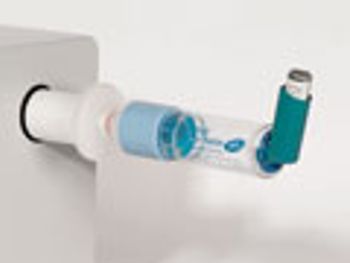
New excipients and improvements to existing excipients are needed to facilitate access to new drugs for patients.

Biopharma are looking to reduce risk, increase performance, and optimize productivity in raw material development.

Biopharma companies seeking to leverage opportunities in African market must adopt the right strategy to achieve success.

Biopharma manufacturers must reduce the risk in their complex supply chains

The pharma industry makes slow, but steady moves toward commercial-scale continuous processes for small-molecule API manufacturing.

Customers are looking to reduce risk, increase performance, and optimize productivity.

Shrinking facility size, growth of biologics, and emerging market demand influence pharma investments.

The pharma industry is moving toward commercial-scale continuous processes for small-molecule API manufacturing.

The Modular Automated Sampling Technology platform allows sampling of bioreactors.

The Modular Automated Sampling Technology platform takes online samples from bioreactors and transfers them directly to analytical devices.

Industry seeks alternatives to costly and toxic precious metals used to form the catalysts for organic synthesis.

Transition metal-containing catalysts are widely used in organic synthesis, but many are based on expensive, rare metals. Researchers are seeking more sustainable alternatives.
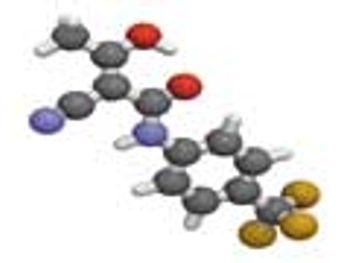
The perceived risks associated with cocrystals may be slowing progress of their industrial application.

Appropriate process design and engineering are critical for the production of small-molecule and biologic HPAPIs.
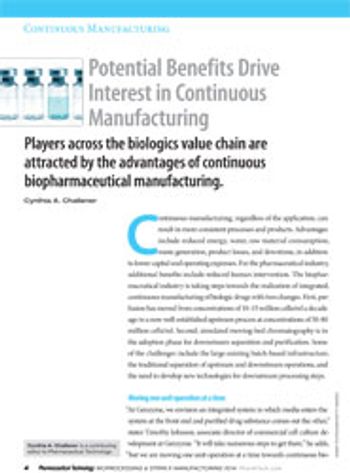
Players across the biologics value chain are attracted by the advantages of continuous biopharmaceutical manufacturing.
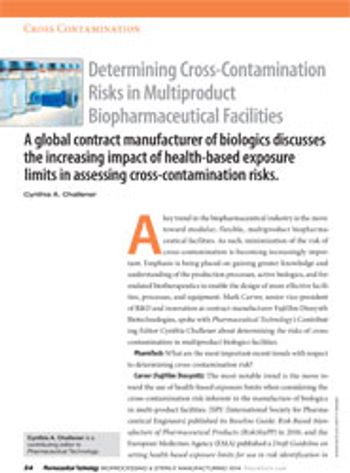
A global contract manufacturer of biologics discusses the increasing impact of health-based exposure limits in assessing cross-contamination risks.

Once an afterthought, packaging has now become an essential component of biopharmaceutical product development and marketing.

Drug developers are taking a wait-and-see approach to the use of cocrystals.

Increasing potency and growing interest in antibody-drug conjugates are creating challenges for manufacturers of HPAPIs.

Both upstream and downstream processes can benefit from continuous manufacturing advantages.
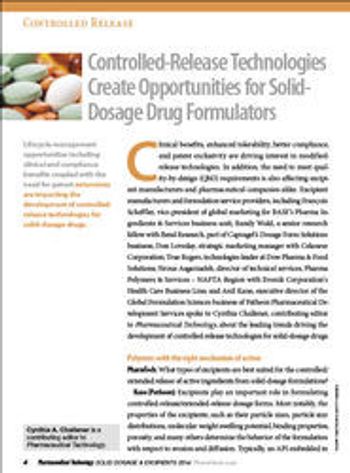
Lifecycle management opportunities are impacting the development of controlled-release technologies for solid-dosage drugs.

Increasing potency and growing interest in antibody-drug conjugates are creating challenges for manufacturers of HPAPIs.

Higher antibody titers and a growing demand for smaller-volume, flexible processes are creating the need for more cost-effective downstream processing.